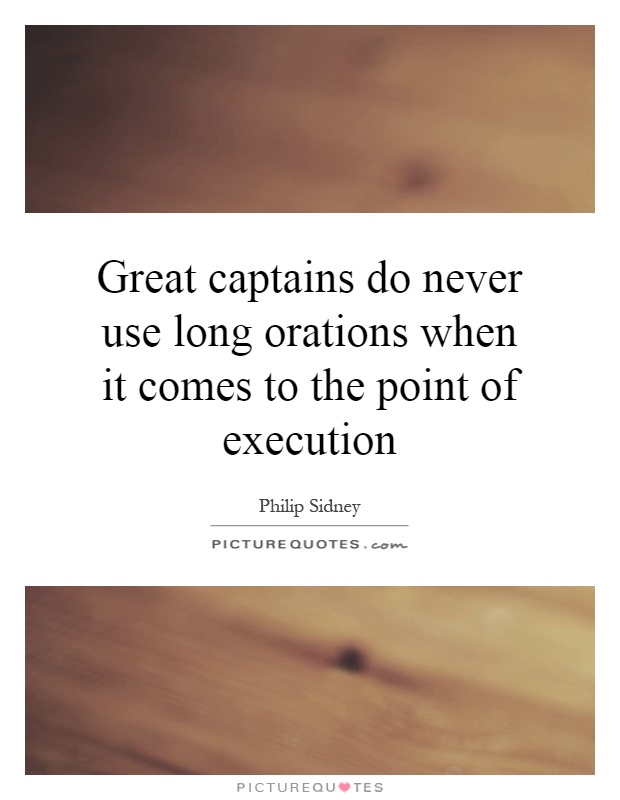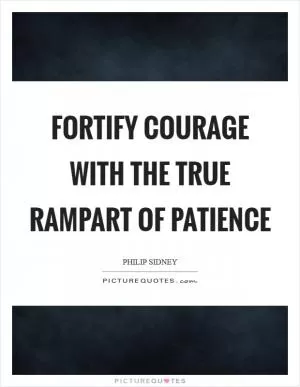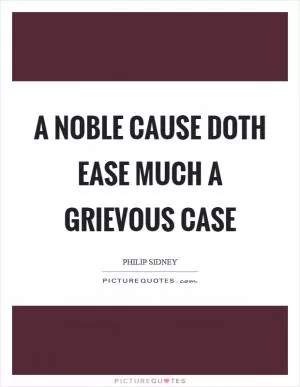Great captains do never use long orations when it comes to the point of execution

Great captains do never use long orations when it comes to the point of execution
Sir Philip Sidney was a renowned English poet, courtier, and soldier who lived during the Elizabethan era. He was known for his chivalrous demeanor, his dedication to his country, and his exceptional leadership skills. One of the key principles that Sidney believed in was the idea that great captains do not waste time with long speeches when it comes to the point of execution.Sidney understood that in times of war or crisis, decisive action was often more important than eloquent words. He believed that a true leader should be able to make quick and effective decisions without getting bogged down in lengthy discussions or debates. This belief was reflected in his own actions on the battlefield, where he was known for his bravery, strategic thinking, and ability to inspire his troops through his actions rather than his words.
One of the most famous examples of Sidney's leadership in action was during the Battle of Zutphen in 1586. As the English forces were being overwhelmed by the Spanish army, Sidney was struck by a musket ball that shattered his thigh. Despite his severe injury, Sidney refused to be carried off the battlefield and instead urged his men to continue fighting. His courage and determination in the face of adversity inspired his troops to rally and ultimately achieve victory.
Sidney's belief in the power of action over words was also evident in his writing. In his famous work, "The Defence of Poesy," Sidney argued that poetry and literature should not be judged solely on their rhetorical flourishes, but rather on their ability to inspire and move the reader to action. He believed that great writing should be able to stir the emotions and ignite the imagination, much like a great leader on the battlefield.












 Friendship Quotes
Friendship Quotes Love Quotes
Love Quotes Life Quotes
Life Quotes Funny Quotes
Funny Quotes Motivational Quotes
Motivational Quotes Inspirational Quotes
Inspirational Quotes